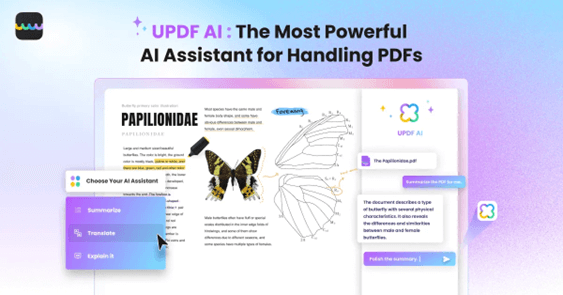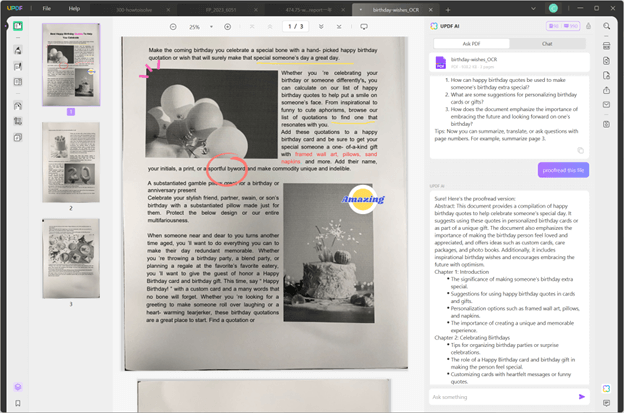How to Improve Translation Skills?
(All You Need to Know)
See also: Intercultural Awareness
Being a translator is not only about knowing multiple languages: being a good translator takes much more than that. You need to excel at several translation skills directly and indirectly related to different languages. So, whether you want to take up translation as your profession, or improve your translation skills, working on the skills listed in this article is crucial for success.
This guide will elaborate on the importance of these skills, provide tips and practice methods, and offers other relevant guidance. So, stick with us until the end to ensure you improve as a translator.
Part 1. 10 Must-Have Basic Skills for Translation
If you plan to become a translator, basic language knowledge will not help. You need to have several other skills, and below are the 10 most important ones.
1. Master Translation Tools
The first must-have skill for becoming a better translator is choosing and mastering the right tool. The right tool brings all the features to improve your translation efficiency. Meanwhile, mastering some tools will ensure that you use them to their best capability and get good productivity with smart usage methods. Such tools not only help you improve your translating skills but also improve your accuracy.
Selecting the right tool is important since not every tool offers the same features. UPDF is one of the AI-powered PDF tools that can make translating very easy for you. It can work on files from different formats, including:
- Word
- PPT
- Excel
- PDF, etc.
You can open files of different formats in UPDF and then use the UPDF AI feature to easily translate, explain, and even summarize the whole thing for a better understanding. You can translate the PDF on your own, use the UPDF AI to translate again, compare two versions, and improve your translation skills. You can also use its explain-feature to help you understand some unfamiliar words. UPDF has a powerful search feature integrated into the UPDF AI chat option where you can ask questions to get all the relevant information for translating.
Moreover, the comment feature allows you to take notes on the files while translating or studying them, which makes revision efficient. Once you finish the translation, you can export and share that file using the link QR code or directly email the required person. One of the best features of UPDF is that it stores and manages all your language-related documents in UPDF Cloud.
Once saved on UPDF Cloud, you can access it on any device with your account logged in since it syncs work in real time.

As well as the features mentioned above, it also has many other features such as creating PDFs from many popular formats, converting PDF to 14 formats, compressing PDFs for sharing, and creating and editing fillable forms.
2. Advanced Language Knowledge
Being a translator is not about knowing the basic translation only, but it requires having an in-depth knowledge of both languages you are translating. It includes understanding the nuances, grammatical structures, and idioms in both languages and their tone. So, whenever you translate, you do not change the intent and original meaning of the content.
3. Writing Skills
You don’t always need to speak when translating, but sometimes you must write or type. So, converting your translation thoughts into words is an essential skill. Having this skill makes it easy to convey ideas into words, and this way, the content stays coherent and engaging while keeping the meaning tailored to the target audience of both the first and second languages.
4. Research Skills
No matter how well your grip on one language, you will always come across unfamiliar terms, idioms, or cultural references. That challenge can only be dealt with by having good research skills. By efficient research, you can understand the niche and main idea behind the content, making translation efficient.
5. Attention to detail
Attention to detail brings precision to your work, and accuracy is extremely important when it comes to translating skills. Sometimes, missing a small detail can change the whole context of your translation. So, being a translator, it is essential to pay attention to every little detail. That’s the only way of maintaining the meaning of every term, sentence, and the whole conversation.
6. Cultural sensitivity
Learning about the cultures of both languages you translate is very important. It is because certain tones and terms refer to a specific meaning in one culture, and translating them grammatically will not deliver the true meaning. So, as a translator, you must learn cultural sensitivity to recognize cultural values in your translation. It helps you to avoid mistakenly changing the intended meaning during linguistic translation.
7. Subject matter expertise
When translating professionally, you often deal with documents and studies that need special knowledge about the subject matter. Every translator must know about the subjects they are translating because that is the only way to maintain technical integrity. Otherwise, industry-specific content cannot be translated correctly in the context of the original language.
8. Proofreading skills
Proofreading skills are important for everyone since even the person with the best translating skills and grip on the language can make mistakes. Through proofreading, you can ensure that the content is translated with the correct meaning and does not change the content's intent or tone. Additionally, it checks for typographical, linguistic, grammatical, and any other errors.

9. Language flexibility
Having language flexibility and the commitment to continuous learning is a personal-level skill that every good translator has. A translator must adapt since languages continuously evolve with different usage patterns, terms, and slang. It requires updating your glossary and understanding which terms, tones, or slang will be used. It is an important skill to have in both languages. Lacking this skill will make the translating process difficult for you, and your translations will start lacking context, which will be ineffective.
10. Understanding of localization
Beyond just translating words, localization entails modifying material to match a given location's linguistic, functional, and cultural specifics. This can include adjusting a story's cultural allusion to something the intended audience would understand or changing date formats to suit regional traditions. If you don't possess this skill, your translations might be perfect linguistically, but they will not deliver the context of the original content correctly.
Part 2. How to Improve Translation Skills?
Once you gain and master all the above skills, your translation will significantly improve, but there will still be room for improvement. So, you can follow these tips for improving your translating skills:
- Translating requires practice, so engage in a continuous learning environment
- Maintain your glossary of words and terms for a firm grip
- Select a niche for translating and excel at it
- Network with people from both language groups and try to communicate on different topics
- Always welcome feedback and note your shortcomings to improve.
Part 3. How to Practice Translation Skills?
Are you out of ideas on how to practice your translation skills, or do the basic translation exercises not seem to help anymore? Here are a few methods that will give you newer challenges and will help you improve:
- Find a freelance translator job that matches your skill level
- Participate in online communities or offline workshops to practice
- Try to translate songs, as it will help you explore a lot of vocabulary
- Translate short stories and videos
- Translate news articles
Part 4. FAQs About the Skills of a Translator
Q1. What are the three main qualities of a good translator?
A good translator holds several skills and qualities, but the three most important ones include:
- Having a deep understanding of both languages, including cultural context, idioms, etc.
- Having cultural sensitivity to both languages to translate as per the target audience
- Great attention to detail for precision translating. This helps in maintaining the original message when translating.
Q2. What are the five principles of a translator?
The following are five principles of a translator:
- They should maintain the integrity of the original text with accuracy.
- They should be transparent with the tone and delivery of language since that can change the meaning sometimes.
- A translator keeps the information confidential while following professional ethics.
- The translator must be neutral and not add any interpretations to the content or tone while translating.
- The translator must commit to continuous learning
Q3. What are the communication skills of a translator?
The communication skills of a translator include:
- Active listening
- Cultural communication
- Clear writing in both languages
- Reading comprehension
- Open to receiving feedback
- Adaptability to different tones and intent
All these communication skills are essential for a translator.
To conclude...
Translation is essential today since the internet has turned our world into a global village. Becoming a translator is not only about learning linguistic properties; a good translator has qualities like cultural sensitivity, attention to detail, professional ethics, and understanding of different tones. In this era of technology, computers, and software can make things significantly easier for you if you have the right translation skills like the ten must-have ones we discussed above.
If you want reliable software to aid you with translation, try UPDF. Its AI capabilities can improve your efficiency while translating. Apart from translating, it has many other PDF editing, converting, and organizing features, offering a complete package. Get UPDF with 63% off now!
About the Author
Staff Editor Rachel Bontu is a content writer for PDF related topics. She has worked in the PDF software industry for 5 years and has a deep understanding of customer's issues and needs. She loves to write about the tips she knows to help readers.
